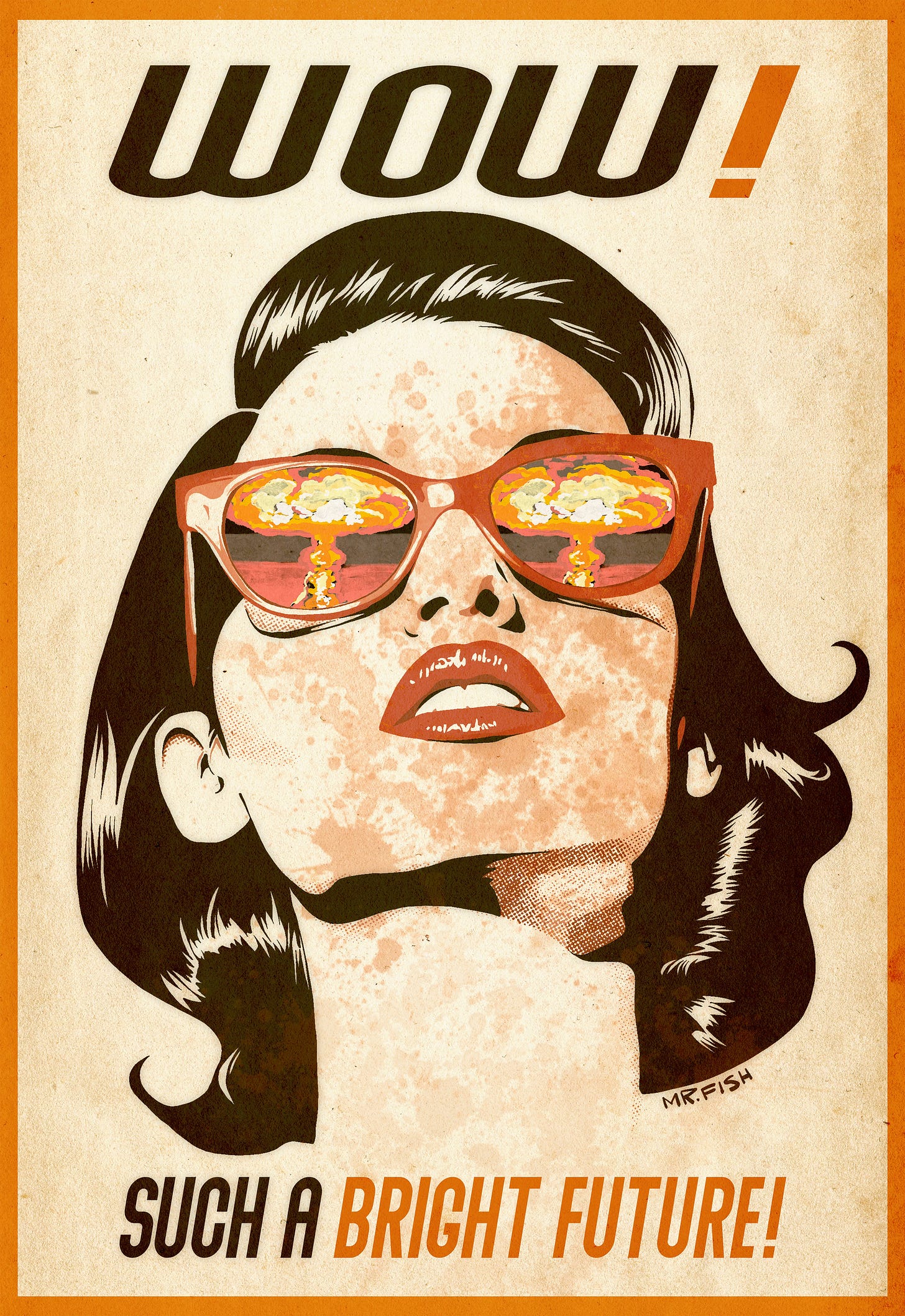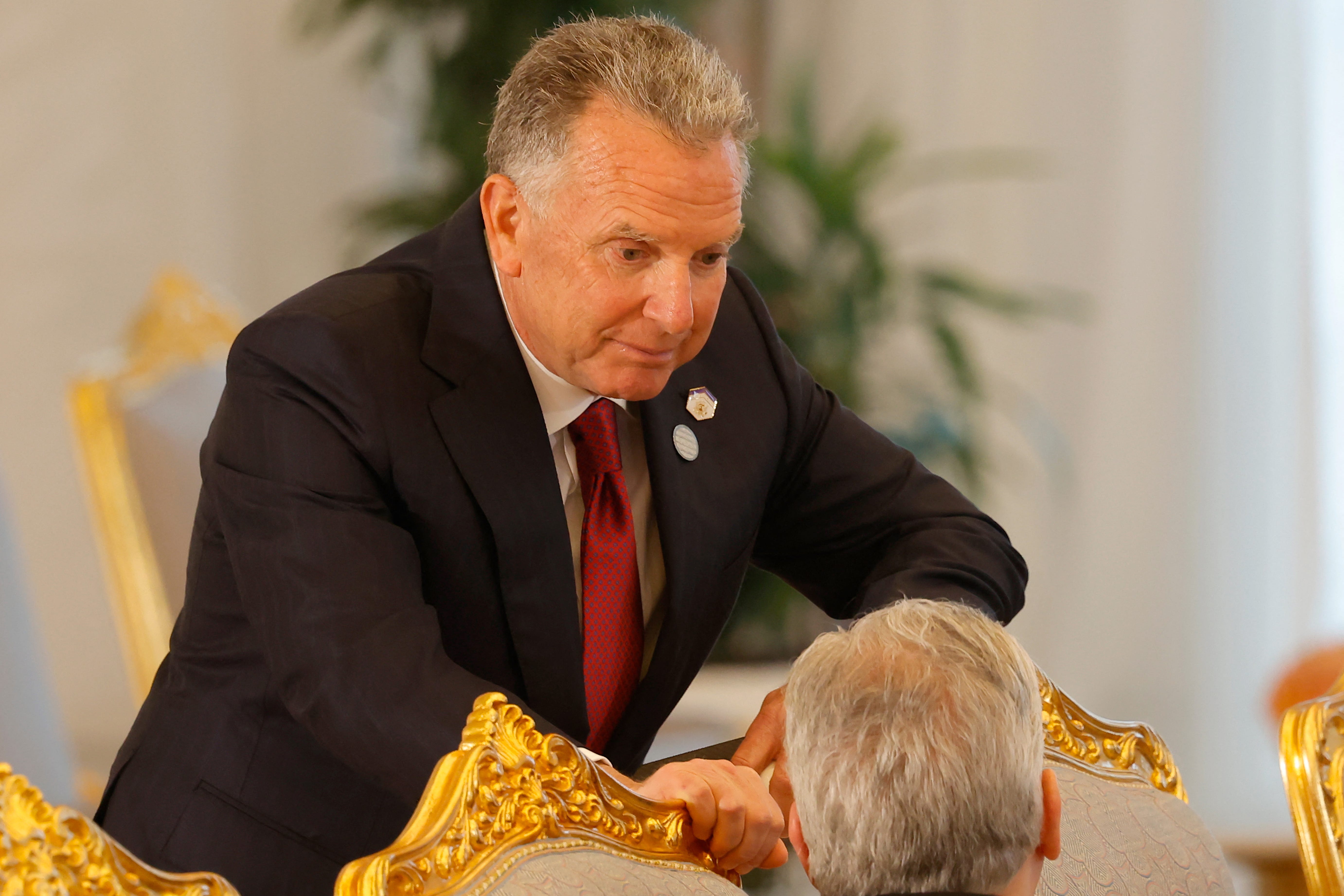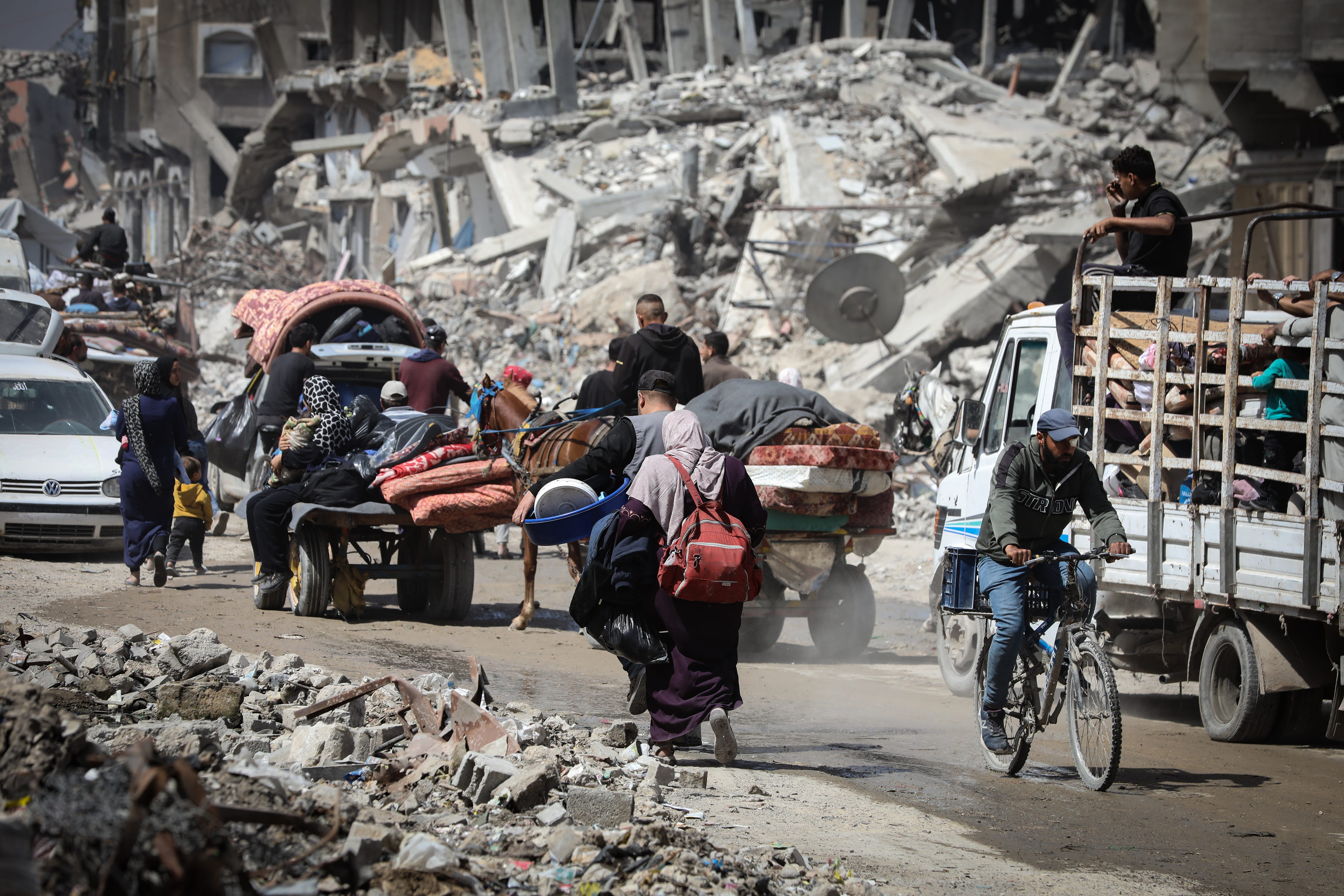Such a Bright Future - by Mr. Fish
CAIRO, Egypt — It is 200 miles from where I am in Cairo to the Rafah border crossing into Gaza. Parked in the arid sands in the northern Sinai of Egypt are 2,000 trucks filled with sacks of flour, water tanks, canned food, medical supplies, tarps and fuel. The trucks idle under the scorching sun with temperatures climbing into the high 90s.
A few miles away in Gaza, dozens of men, women and children, living in crude tents or damaged buildings amid the rubble, are being butchered daily from bullets, bombs, missile strikes, tank shells, infectious diseases and that most ancient weapon of siege warfare — starvation. One in five people are facing starvation after nearly three months of Israel’s blockade of food and humanitarian aid.
Israeli Prime Minister Benjamin Netanyahu, who has launched a new offensive that is killing upwards of 100 people a day, has declared that nothing will impede this final assault, named Operation Gideon’s Chariots.
There will be “no way,” Israel will stop the war, he announced, even if the remaining Israeli hostages are returned. Israel is “destroying more and more houses” in Gaza. The Palestinians “have nowhere to return.”
“[The] only inevitable outcome will be the wish of Gazans to emigrate outside of the Gaza Strip,” he told lawmakers at a leaked closed-door meeting. “But our main problem is finding countries to take them in.”
The nine-mile border between Egypt and Gaza has become the dividing line between the Global South and the Global North, the demarcation between a world of savage industrial violence and the desperate struggle by those cast aside by the wealthiest nations. It marks the end of a world where humanitarian law, conventions that protect civilians or the most basic and fundamental rights matter. It ushers in a Hobbesian nightmare where the strong crucify the weak, where no atrocity, including genocide, is precluded, where the white race in the Global North reverts to the unrestrained, atavistic savagery and domination that defines colonialism and our centuries long history of pillage and exploitation. We are tumbling backwards in time to our origins, origins that never left us, but origins that were masked by empty promises of democracy, justice and human rights.
The Nazis are the convenient scapegoats for our shared European and American heritage of mass slaughter, as if the genocides we carried out in the Americas, Africa and India did not take place, unimportant footnotes in our collective history.
In fact, genocide is the currency of Western domination.
Between 1490 and 1890, European colonization, including acts of genocide, was responsible for killing as many as 100 million indigenous people, according to the historian David E. Stannard. Since 1950 there have been nearly two dozen genocides, including those in Bangladesh, Cambodia and Rwanda.
The genocide in Gaza is part of a pattern. It is the harbinger of genocides to come, especially as the climate breaks down and hundreds of millions are forced to flee to escape droughts, wildfires, flooding, declining crop yields, failed states and mass death. It is a blood-soaked message from us to the rest of the world: We have everything and if you try and take it away from us, we will kill you.
Gaza puts to rest the lie of human progress, the myth that we are evolving morally. Only the tools change. Where once we clubbed victims to death, or chopped them to pieces with broadswords, today we drop 2,000-pound bombs on refugee camps, spray families with bullets from militarized drones or pulverize them with tank shells, heavy artillery and missiles.
The 19th century socialist Louis-Auguste Blanqui, unlike nearly all of his contemporaries, dismissed the belief central to Georg Wilhelm Friedrich Hegel and Karl Marx, that human history is a linear progression toward equality and greater morality. He warned that this absurd positivism is perpetrated by oppressors to disempower the oppressed.
“All atrocities of the victor, the long series of his attacks are coldly transformed into constant, inevitable evolution, like that of nature… But the sequence of human things is not inevitable like that of the universe. It can be changed at any moment.” Blanqui warned.
Scientific and technological advancement, rather than an example of progress, could “become a terrible weapon in the hands of Capital against Work and Thought.”
“For humanity” Blanqui wrote, “is never stationary. It either advances or goes back. Its progressive march leads it to equality. Its regressive march goes back through every stage of privilege to human slavery, the final word of the right to property.” Further, he wrote, “I am not amongst those who claim that progress can be taken for granted, that humanity cannot go backwards.”
Human history is defined by long periods of cultural barrenness and brutal repression. The fall of the Roman Empire led to immiseration and repression throughout Europe during the Dark Ages, roughly from the sixth through the 13th century. There was a loss of technical knowledge, including how to build and maintain aqueducts. Cultural and intellectual impoverishment led to collective amnesia. The ideas of ancient scholars and artists were blotted out. There was no rebirth until the 14th century and the Renaissance, a development made possible largely by the cultural flourishing of Islam, which, through translating Aristotle into Arabic and other intellectual accomplishments, kept the wisdom of the past from disappearing.
Blanqui knew history’s tragic reverses. He took part in a series of French revolts, including an attempted armed insurrection in May 1839, the 1848 uprising and the Paris Commune — a socialist uprising that controlled France’s capital from March 18 until May 28 in 1871. Workers in cities such as Marseilles and Lyon attempted, but failed, to organize similar communes before the Paris Commune was militarily crushed.
We are entering a new dark age. This dark age uses the modern tools of mass surveillance, facial recognition, artificial intelligence, drones, militarized police, the revoking of due process and civil liberties to inflict the arbitrary rule, incessant wars, insecurity, anarchy and terror that were the common denominators of the Dark Ages.
To trust in the fairy tale of human progress to save us is to become passive before despotic power. Only resistance, defined by mass mobilization, by disrupting the exercise of power, especially against genocide, can save us.
Campaigns of mass killing unleash the feral qualities that lie latent in all humans. The ordered society, with its laws, etiquette, police, prisons and regulations, all forms of coercion, keeps these latent qualities in check. Remove these impediments and humans become, as we see with the Israelis in Gaza, murderous, predatory animals, reveling in the intoxication of destruction, including of women and children. I wish this was conjecture. It is not. It is what I witnessed in every war I covered. Almost no one is immune.
The Belgian monarch King Leopold in the late 19th century occupied the Congo in the name of Western civilization and anti-slavery, but plundered the country, resulting in the death — by disease, starvation and murder — of some 10 million Congolese.
Joseph Conrad captured this dichotomy between who we are and who we say we are in his novel “Heart of Darkness” and his short story “An Outpost of Progress.”
In “An Outpost of Progress,” he tells the story of two European traders, Carlier and Kayerts, who are sent to the Congo. These traders claim to be in Africa to implant European civilization. The boredom, the stifling routine, and most importantly the lack of all outside constraints, turns the two men into beasts. They trade slaves for ivory. They fight over dwindling food and supplies. Kayerts finally murders his unarmed companion Carlier.
“They were two perfectly insignificant and incapable individuals,” Conrad wrote of Kayerts and Carlier, “whose existence is only rendered possible through the high organization of civilized crowds. Few men realise that their life, the very essence of their character, their capabilities and their audacities, are only the expression of their belief in the safety of their surroundings. The courage, the composure, the confidence; the emotions and principles; every great and every insignificant thought belongs not to the individual but to the crowd: to the crowd that believes blindly in the irresistible force of its institutions and its morals, in the power of its police and of its opinion. But the contact with pure unmitigated savagery, with primitive nature and primitive man, brings sudden and profound trouble into the heart. To the sentiment of being alone of one’s kind, to the clear perception of the loneliness of one’s thoughts, of one’s sensations — to the negation of the habitual, which is safe, there is added the affirmation of the unusual, which is dangerous; a suggestion of things vague, uncontrollable, and repulsive, whose discomposing intrusion excites the imagination and tries the civilized nerves of the foolish and the wise alike.”
The genocide in Gaza has imploded the subterfuges we use to fool ourselves and attempt to fool others. It mocks every virtue we claim to uphold, including the right of freedom of expression. It is a testament to our hypocrisy, cruelty and racism. We cannot, having provided billions of dollars in weapons and persecuted those who decry the genocide, make moral claims anymore that will be taken seriously. Our language, from now on, will be the language of violence, the language of genocide, the monstrous howling of the new dark age, one where absolute power, unchecked greed and unmitigated savagery stalks the earth.






















